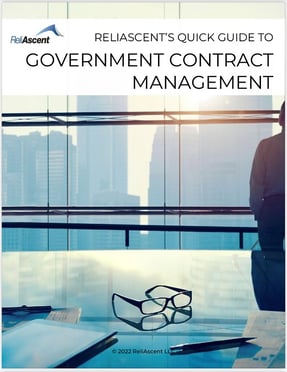GOVERNMENT CONTRACT & COST PROPOSAL REVIEWS
Have you made any of the top 10 mistakes prior to signing a government contract:
2. CLINs don’t have appropriate detail to allow for invoicing
3. Invoicing information incorrect or missing
4. Scope of contract incorrect
5. DODACC codes incorrect
6. Contract value was incorrect
7. Invoicing instruction don’t match how the work is performed
8. No avenue for contractor to invoice for payment
9. CLIN detail doesn’t match SOW
10. SOW doesn’t match proposal
In the government contract arena, changes to a contract prior to final signature are relatively easy; at least compared to the process required to change a contract that has already been executed. So, prior to adding your signature, is the best time to change a contract. Does your staff even have the expertise to review a contract to ensure that what you are signing is what you expect?
All of these items listed will mean a future contract change, and nearly all of them will prohibit the contractor from invoicing the government until the problem is resolved. How long do you want to work without any options for payment?
You spend hours, weeks, sometimes months getting a proposal together, figuring out all the scheduling, costs and technical aspects that make your proposal strong. Months go by, and finally, you find out that your proposal has been accepted and a contract will be awarded! The pressure is intense to get the contract signed and secured. Are you doing proper accounting, legal and contract terms reviews?
Before you sign a contract, call ReliAscent! Our expert government contract compliance consultants can review your contract or grant, and help you avoid the pitfalls that will put your business at risk.
Government Proposal Support and Reviews
When submitting a proposal for a Federal Government contract or grant, it’s critically important that a contractor has a comprehensive understanding of the rules and requirements of their prospective Federal Agency. For most companies, the reality is that you must have an understanding of these rules from multiple agencies, as most have the opportunity to propose on contracts and grants from agencies like the DoD, NASA, DoE, NSF and NIH.
How do these Federal Agencies differ? First, understand that while most of them have a similar concept of Direct and Indirect Costs, certain agencies are used to dealing with different types of contractors and grantees, and require different levels of transparency, cost tracking, and indirect / billing rates. Some agencies allow you to claim fringe benefits separately from your indirect, without a limitation on your fringe.
Making sure that your proposal meets the particular contracting agency’s requirements is critical to your success. After all; a company can have a great idea, or write a great technical proposal, but failure to properly structure your proposal and rates, can render it dead on arrival.
At ReliAscent, our Federal Contracting experts have over 170 years of contract management and proposal support experience, and we can help review your proposal prior to submission. Our experts can not only get your business on a rate structure that makes sense for your company, but can potentially identify weaknesses and errors in your proposal (thereby increasing your chances of award), and proactively resolve potential (unforeseen) issues during the period of performance.
And the best part is: all of ReliAscent’s services are considered allowable costs, and can be included in your indirect rate (meaning you in essence, pay nothing for our services).